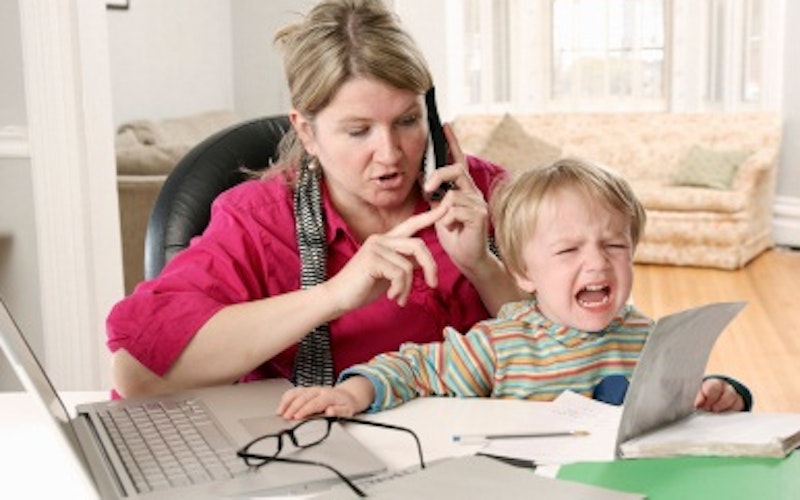
Culture At Large
Why having kids shouldn’t make you happy
On the first night my writers’ group began we took turns going around the circle introducing ourselves, sharing a snapshot of our day and the obstacles we faced to writing. The first several people in the circle primarily identified themselves as stay-at-home moms struggling with exhaustion and lack of time to pursue anything other than basic daily survival, let alone writing. Most of us laughed at the coincidence of four similar stories in a row, but one man tried to offer encouragement with the words: “You can write and be a mother. Think about Sylvia Plath - she was a mom and a writer!”
The room got quiet for a beat until this reply: “Dude, she stuck her head in an oven.”
I thought about this story as I read a number of articles promoting the new book, Why Have Kids?: A New Mom Explores the Truth About Parenting and Happiness, by Jessica Valenti.
Publishers Weekly posted an excerpt from Why Have Kids? titled “5 Reasons Not to Have Kids.” At first glance, I could only sputter with annoyance over several of the reasons: loss of independence and freedom; difficult changes in other relationships; financial burden; and career sacrifice. Valenti includes statistical studies showing that parenting does not guarantee an increase in happiness over those who choose not to have children. The head-in-the-oven conclusion drawn by the author? If we aren’t guaranteed happiness, then why bother having children?
After more reading, I began to wonder if Valenti’s main goal for stirring up controversy is to call a bluff on the status quo. Her call to action? If the thought of parenting is making you miserable, then don’t do it. Either be a mom or don’t be a mom, just quit your griping and get on with it already.
Maybe the “mommy wars” have spun such a tangled web in our fearful psyches because we’ve forgotten that parenthood - at its foundation - is about sacrifice and risk.
As Christ-followers, we’re supposed to provide a counter-cultural perspective, but maybe we, too, have been preoccupied with the same assumptions that Valenti wishes to challenge. Maybe the “mommy wars” have spun such a tangled web in our fearful psyches because we’ve forgotten that parenthood - at its foundation - is about sacrifice and risk. That all true love is about sacrifice and risk.
Happiness is a wonderful by-product we all hope to experience, but it’s a feeling far too unreliable to bear the weight of life decisions such as whether or not to have children. The practice of contentment is far more reliable. Contentment can be cultivated in whatever circumstances we find ourselves.
What might this counter-culture of contentment look like?
- What if instead of sinking our identities in our roles as parents or non-parents, we rest in the identity secured for us by Christ, who is even now seated next to the Father making intercession for us (and all our fears)?
- What if instead of gulping down every media-spread trend about what our kids need and don’t need, we remember the ancient practice of discernment? What if we relied on wisdom from those who’ve gone before us and trust the Father to sustain those who come after us?
- What if we sought relationships with those who aren’t parents and see them as equals in our community? My friend Kim - a professional and not a mother - sees her role this way: “Just because I’m not a parent does not mean I have no responsibility to the children in our community.”
- What if we confessed our tendency to cling tightly to only those people in our same demographic? What if we mixed it all up - marrieds and unmarrieds, parents and non-parents, professionals and stay-at-home parents, old and young?
A piece by Valenti in The Atlantic concludes, “The truth about parenting is that the reality of our lives needs to be enough.”
Sounds a bit like contentment to me.
What Do You Think?
- What should guide a Christian couple’s decisions about having children?
- How can those who have children foster good relationships with those who don’t?
- How would you describe a Christian understanding of contentment?
Topics: Culture At Large, Home & Family, Parenting